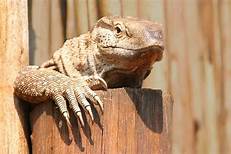How Long Do Lizards Live as Pets?
Lizards are popular pets due to their unique appearance and relatively easy care requirements. However, one common question potential owners have is, "How long do lizards live as pets?" The answer to this question depends on several factors, including the species of lizard, its size, and its overall health.

Lizard Lifespan in Captivity
In general, lizards live longer in captivity than they would in the wild. This is because they are protected from predators, have access to a consistent food and water supply, and receive regular veterinary care. The average lifespan of a lizard in captivity is between 5 and 10 years.
Factors Affecting Lizard Lifespan
Several factors can affect a lizard's lifespan in captivity, including:
- Species: Some species of lizards naturally have longer lifespans than others. For example, the common leopard gecko can live up to 20 years in captivity, while the green iguana can live up to 15 years.
- Size: Smaller lizards tend to have shorter lifespans than larger lizards. This is because they are more susceptible to predators and environmental changes.
- Health: A lizard's overall health plays a significant role in its lifespan. Lizards with chronic health conditions or injuries are more likely to have a shorter lifespan.
- Diet: A healthy diet is essential for a long and healthy life. Lizards that are fed a balanced diet that meets their nutritional needs are more likely to live longer.
- Habitat: Lizards need a habitat that meets their specific needs. This includes the right temperature, humidity, and space. A lizard that is not provided with a suitable habitat is more likely to experience health problems and have a shorter lifespan.
- Stress: Stress can also take a toll on a lizard's lifespan. Lizards that are stressed due to overcrowding, poor handling, or other factors are more likely to get sick and die.
How to Extend Your Lizard's Lifespan
There are several things you can do to help extend your lizard's lifespan, including:
- Choose a healthy lizard: When choosing a lizard, look for one that is active, alert, and has no visible signs of illness or injury.
- Provide a suitable habitat: Make sure your lizard's habitat is the right size, temperature, and humidity. You should also provide your lizard with a variety of hiding places and climbing structures.
- Feed your lizard a healthy diet: Feed your lizard a balanced diet that includes a variety of live insects, fruits, and vegetables. You should also dust your lizard's food with a calcium supplement.
- Handle your lizard gently: Lizards are fragile creatures, so you should handle them gently. Avoid grabbing your lizard by the tail or wings.
- Take your lizard to the vet regularly: Take your lizard to the vet for regular checkups. This will help ensure that your lizard is healthy and free of any diseases or parasites.
By following these tips, you can help your lizard live a long and healthy life.
Declaration: All article resources on this website, unless otherwise specified or labeled, are collected from online resources. If the content on this website infringes on the legitimate rights and interests of the original author, you can contact this website to delete it.





